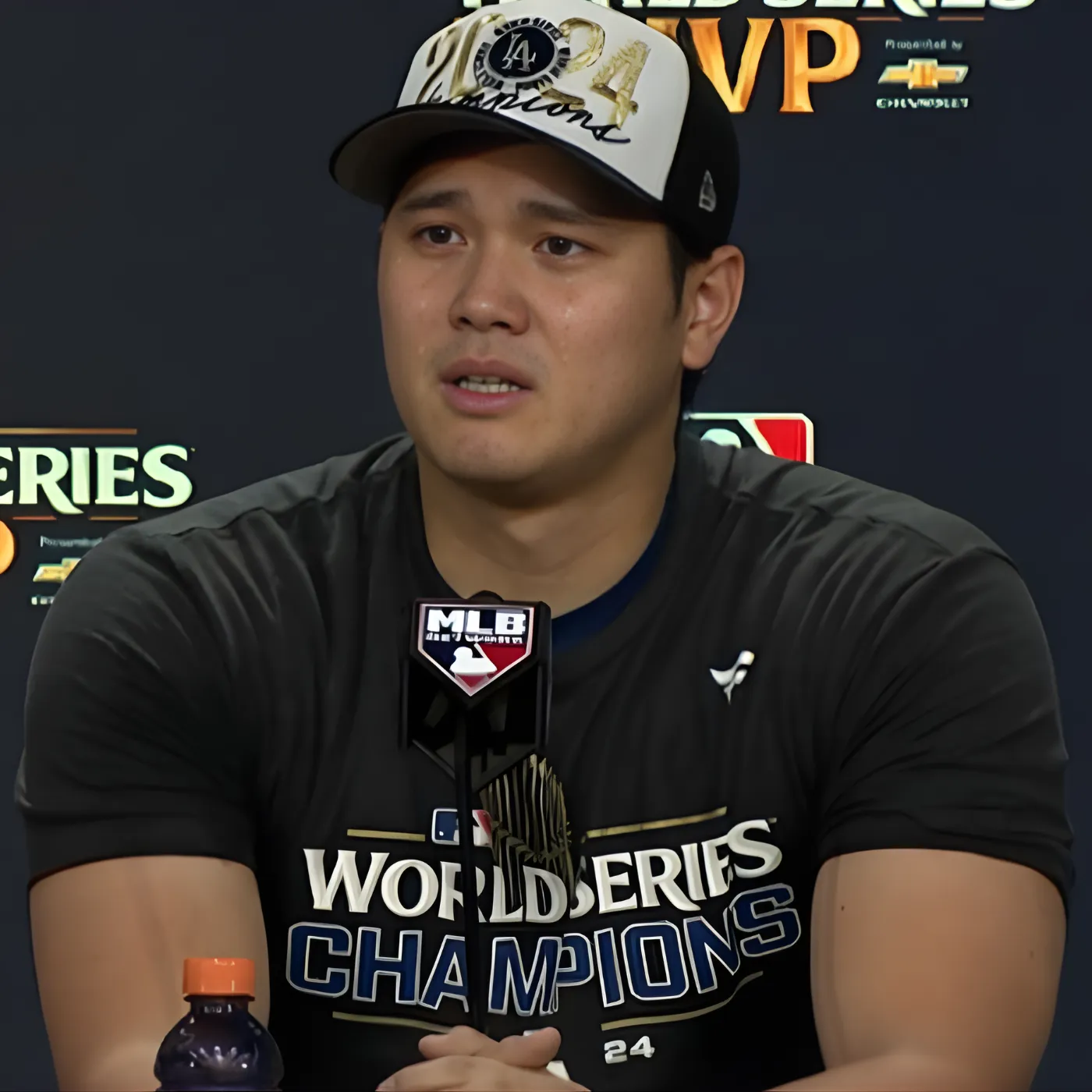

Aaron Judge Says Strongly: ‘I’m Not Cheering For Anyone’ — What That Really Means For The AL Championship Race
In Major League Baseball, few stories capture the attention of fans like the race for home run supremacy. In 2025, the spotlight shines brightly on Aaron Judge, the towering outfielder of the New York Yankees, and Cal Raleigh, the Seattle Mariners’ standout catcher. Raleigh, with a record-breaking 50 home runs in 132 games, is closing in on Judge’s American League home run mark of 62 from 2022.
On August 25, 2025, Judge made headlines for a seemingly simple yet loaded statement during a post-game interview: “I’m not rooting for anyone.” While at first glance, it may appear as a standard remark reflecting competitiveness, it carries layers of meaning—about personal pride, team priorities, and the intense rivalry shaping this home run chase.
In this article, we explore what Judge’s comment truly signifies, the context of his words, and the broader implications for MLB fans, players, and playoff contention.
Setting the Stage – Judge vs. Raleigh
The context for Judge’s statement comes from a game in which the Yankees secured a 10-5 victory over the Washington Nationals. Following the game, Judge acknowledged Raleigh’s incredible season and his position atop the home run leaderboard. Raleigh has accumulated 50 home runs, just 12 shy of Judge’s record, positioning him as a legitimate contender to make history.

Despite this acknowledgment, Judge emphasized the Yankees’ current priorities: the team is competing for the AL wild card and striving to maintain its position in the standings. His remark—“I’m not rooting for anyone outside the Yankees”—reflects a competitive focus that prioritizes team success over individual accolades.
Raleigh, meanwhile, continues to impress. His home run in the most recent game brought his total to 50, demonstrating that the chase for the AL home run record is intensifying. Judge, while not endorsing Raleigh’s record pursuit, did praise him as “an incredible ambassador for the sport” and expressed admiration for watching Raleigh play. This illustrates a professional respect for fellow athletes, even amid intense competition.
Analyzing Judge’s Statement
Competitiveness Over Sentiment
Judge’s comment signals that professional priorities outweigh personal feelings. In MLB, chasing records often coincides with strategic team considerations. With both the Yankees and Mariners contending for playoff spots, rooting for Raleigh could be seen as indirectly harming the Yankees’ chances. By stating he isn’t supporting anyone, Judge underscores his commitment to his team’s objectives, reminding fans that personal rivalries are intertwined with organizational goals.
Pride and Personal Legacy
Another layer in Judge’s remark is pride in personal achievement. Holding the AL home run record carries immense prestige. Raleigh’s chase naturally prompts reflections on Judge’s legacy. By refraining from rooting for anyone, Judge conveys protectiveness over his own accomplishments, a subtle assertion of dominance and awareness of his place in MLB history.
Maintaining Focus Amid Pressure
Injuries also play a role in understanding Judge’s mindset. Currently recovering from a right elbow injury, Judge has been limited to designated hitter duties while performing throwing and fielding exercises to return to right field. His statement may also reflect a need to concentrate on his rehabilitation, ensuring he can perform at peak levels without distraction from external storylines, including Raleigh’s pursuit.
The Impact of Raleigh’s Chase
Raleigh’s surge to 50 home runs is historic. He is the first primary catcher in MLB history to reach this mark in a single season, a testament to both talent and resilience. This milestone elevates the AL home run race, creating a compelling narrative for fans, broadcasters, and fellow players.
Judge’s acknowledgment of Raleigh’s achievements demonstrates respect and sportsmanship, despite his competitive neutrality. It highlights a nuanced aspect of professional baseball: players can admire skill while maintaining focus on their own objectives. For Raleigh, each home run not only inches him closer to Judge’s record but also intensifies the tension between team objectives and individual accolades.
The chase is not just symbolic—it also has real playoff implications. The Yankees and Mariners are competing for the second AL wild card, making every game and performance consequential. Judge’s comment, therefore, can also be read as a strategic signal: he is aware of Raleigh’s talent but will not compromise team priorities by supporting a competitor.
Judge’s Approach to Team Leadership
Judge’s neutrality also reflects his role as a team leader. As the Yankees’ captain and cornerstone player, his focus on the team’s objectives sets the tone for the clubhouse. Players look to him for cues about priorities and mentality. By not openly rooting for Raleigh, Judge reinforces a culture of internal focus and accountability, reminding teammates that individual accolades, while exciting, must align with team success.
This leadership approach has implications for both morale and strategy. A captain who places team interests above external storylines ensures that players remain committed to collective goals, mitigating distractions such as media narratives around record-breaking pursuits by competitors.
Psychological Dynamics of the AL Home Run Race
The AL home run race introduces complex psychological dynamics for both Judge and Raleigh:
-
Pressure on Judge – Being the record-holder and under media scrutiny creates high expectations. Every game is a reminder of his past achievements and his ability to defend his legacy.
-
Motivation for Raleigh – The chase for Judge’s record elevates Raleigh’s profile, enhancing both performance incentives and public attention.
-
Mutual Respect Amid Competition – Judge’s neutral stance, combined with verbal praise, balances competitiveness with professional courtesy, an important psychological element in high-stakes sports.
These dynamics not only affect individual performance but also the strategic decisions of both teams, including lineups, pitching rotations, and in-game management.
Injury and Performance Considerations
Judge’s ongoing recovery from a right elbow injury adds another layer of context. Returning to right field requires both physical readiness and mental focus, especially when balancing the pursuit of team success with personal legacy. As he continues fielding drills and exercises, his statement about not rooting for anyone may reflect a need to minimize distractions while regaining top form.
For fans and analysts, this underscores the interconnected nature of injury management, performance, and competitive mentality in shaping a player’s public statements and on-field behavior.
Media and Fan Interpretation
Judge’s comment has generated widespread discussion among media outlets and fans alike. Headlines often emphasize drama and rivalry, framing the statement as an indication of tense competition between Judge and Raleigh. Social media reactions have ranged from praise for Judge’s professionalism to speculation about underlying tension in the AL home run race.
Such interpretations illustrate how athlete statements can carry multiple readings: strategic, personal, and psychological. Understanding these layers allows fans and analysts to appreciate the complexity of professional baseball beyond statistics.
Broader Implications for MLB

Judge’s remark and Raleigh’s historic season have broader implications for MLB:
-
Marketing and Fan Engagement – The home run race creates compelling storylines for broadcasters and sponsors, enhancing fan interest.
-
Historical Context – Raleigh’s achievements as a catcher set new benchmarks, highlighting positional versatility and offensive capability in modern baseball.
-
Team Strategy – Competing for playoffs while monitoring individual milestones adds layers to coaching decisions, lineup management, and player development.
In this way, a single statement—“I’m not rooting for anyone”—reflects not only personal competitiveness but also the intricate ecosystem of MLB, where individual and team interests intersect.
Conclusion – What Judge’s Statement Really Means
Aaron Judge’s statement is more than a simple refusal to cheer for a rival; it encapsulates professional focus, personal pride, team priorities, and strategic awareness.
-
Judge is committed to the Yankees’ playoff push, emphasizing team over individual accolades.
-
He maintains respect for Cal Raleigh’s accomplishments while setting boundaries to preserve competitive integrity.
-
His words reflect leadership, focus amid injury recovery, and an understanding of the psychological dimensions of elite competition.
As the season progresses, fans can expect the Judge-Raleigh dynamic to remain a focal point, blending historic achievement with the drama of team strategy. For baseball enthusiasts, analyzing such statements offers insight into how elite athletes balance legacy, competition, and professional responsibility, making MLB not just a game of statistics, but a theater of strategy and human ambition.
Related News


















